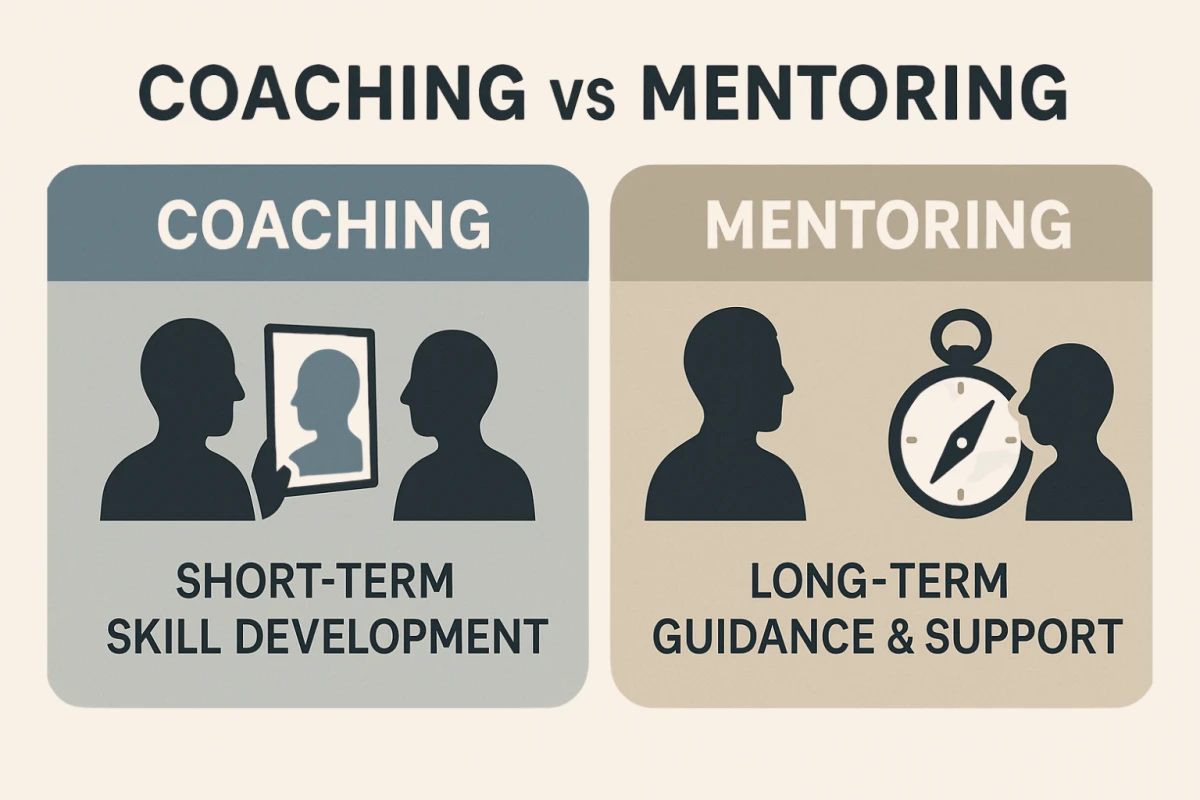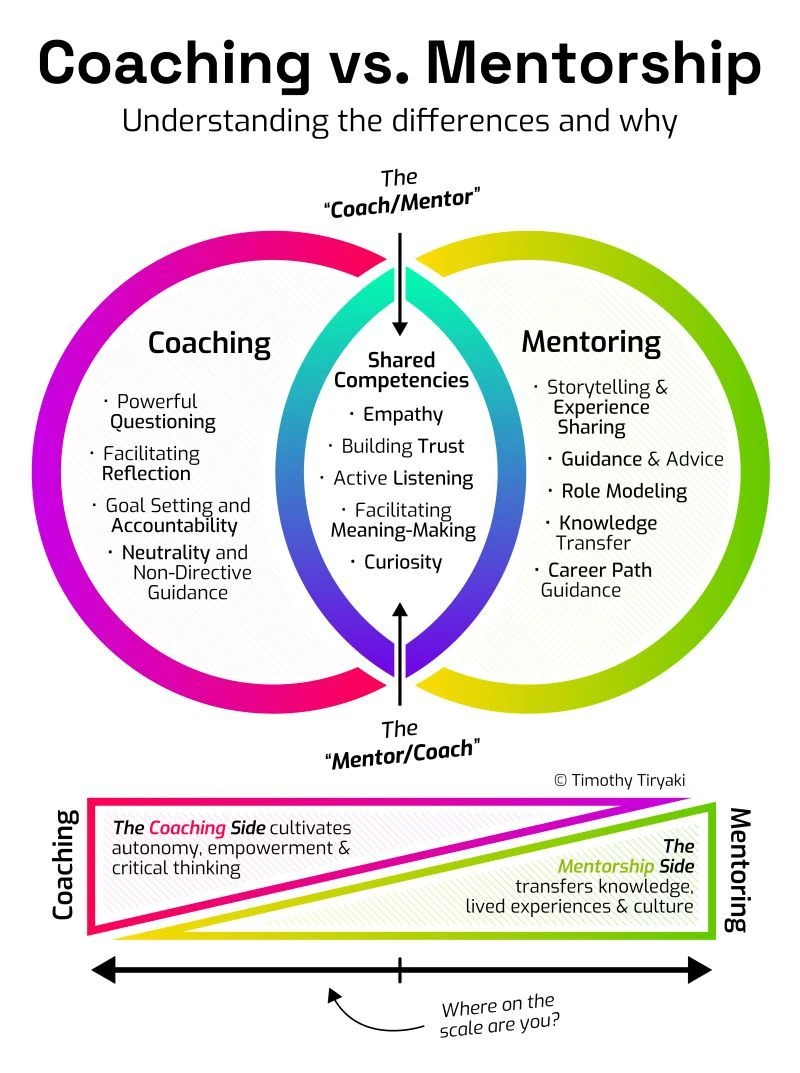Coaching vs Mentoring - Why differentiate?
The terms coaching and mentoring are often used synonymously, but they aim in entirely different directions. The fact that both approaches can be used in conjunction with each other, and perhaps even should be, depending on the objective, motivates me to differentiate and contrast the two.

Comparison
Let's start by distinguishing the two terms. Coaching is essentially about the targeted, short-term development of skills, with a coach holding a mirror and helping you find your answers. Whereas a mentor offers long-term personal and professional support, they act like a compass to guide through experience.
The role to be performed is defined differently. As a coach, I facilitate the process and ask questions that encourage the coachee to reflect. The relationship is usually formal and has a clear focus. This concerns the coachee's performance or behaviour – communication (in leadership positions) in particular plays a vital role in this context.
In a mentoring relationship, both people embark on a personal journey characterized by trust, focusing on career and personal development. The mentor offers knowledge and sometimes even concrete advice.
From this, it can be deduced that the most crucial distinction arises from the approach or working method. The coach offers solution-oriented support for self-help, and the mentor acts as a role model and pursues experience transfer. To be a mentor, I need experience and ideally knowledge in the same professional field as the protégé. To work as a coach, I require systematic and methodical know-how, but not specialist expertise in the coachee's field.
Meaning
In summary, this means that both approaches aim for development and growth, but take different paths to achieve this. What both approaches have in common is that both mentor and coach base their work on listening, empathy, and trust. Without these basic building blocks, neither approach can function.

Conclusion
The relevance of my question about why the two approaches should be distinguished derives from the fact that I assume both roles with different people to varying degrees. To a certain extent, I act as a mentor to my children by sharing experiences. At the same time, I act as a coach, motivating them to think critically through questions and conversations.
In the field of table tennis, I primarily act as a coach. I have attended advanced training in the methods for teaching the sport, and I specifically teach this to my students. As part of my work, I cultivate an appreciative collaboration within the concentric group. During the intensive exchange, my role shifts from coach to mentor to coachee depending on the situation and challenge. Now that I've become aware of the distinction, I will pay more attention to it and make notes in my bullet journal.